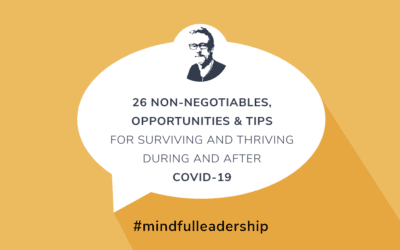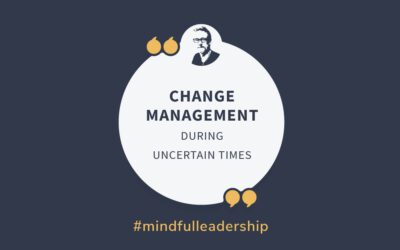Unlocking the Power of People-Centric Culture: How Mindful Leadership Boosts Team Member (aka Employee) Engagement for Business Success


Grant Ian Gamble is a best-selling mindful leadership author and speaker. He has over 30 years of experience in leading teams to create innovative customer experiences, building engaged workforces, and developing leaders who prioritize mindfulness in their approach.
Why do I call people “team members” instead of “employees” or “staff,” and why is it important?
Team member engagement is crucial to the success of any business. It not only boosts productivity but also enhances satisfaction and reduces turnover. With the increasing importance of team member engagement in today’s workplace, it’s essential to focus on creating a people-centric company culture through mindful leadership and always putting people first.
What is team member (aka employee) engagement, and why is it important?
Team member (aka employee) engagement is the level of commitment and dedication a team member has towards their work and their organization. Engaged team members are motivated, passionate, and dedicated to their work, which ultimately leads to increased productivity, higher job satisfaction, and reduced turnover rates.
On the other hand, disengaged team members lack motivation, don’t take pride in their work, and are more likely to quit their jobs. This can be incredibly costly for businesses, as hiring and training new team members is an expensive process.
Creating a people-centric company culture
Creating a people-centric company culture means placing your team members at the heart of everything you do. This involves creating an environment that fosters team members’ growth, development, and well-being, which ultimately leads to increased engagement and retention.
Here are some tips on how to create a people-centric company culture:
- Practice mindful leadership
Mindful leadership involves being fully present and attentive to your team members’ needs, feelings, and concerns. This means taking the time to listen, provide feedback, and show empathy towards them. By doing so, you’ll create a more open and trusting work environment where team members feel valued and respected.
- Communicate regularly
Regular communication is essential in creating a people-centric company culture. It’s important to keep your teams informed about company goals, objectives, and changes. This not only helps team members feel more connected to the organization but also helps them understand how their work contributes to the overall success of the company.
- Provide opportunities for growth and development
Team members want to feel like they’re growing and developing in their roles. Providing opportunities for training, development, and advancement is crucial to team member engagement. This not only helps team members improve their skills and knowledge but also shows them that the company values their growth and development.
- Create a positive work environment
Creating a positive work environment means fostering a culture of trust, respect, and collaboration. This involves recognizing team members for their achievements, providing positive feedback, and encouraging teamwork. By doing so, you’ll create a more supportive work environment where people feel valued and supported.
- Recognize and reward good work
Recognition and rewards are essential to team member engagement. It’s important to recognize people for their achievements, whether it’s through verbal praise, bonuses, or other incentives. By doing so, you’ll motivate them to perform at their best and create a more positive work environment.
In conclusion, team member engagement plays a crucial role in the success of any business. By creating a people-centric company culture through mindful leadership and always putting people first, you’ll foster an environment of trust, respect, and collaboration that leads to increased engagement, productivity, and retention. So, take the time to invest in your people, and you’ll reap the benefits in the long run.

More Articles:
Increase Your Productivity – Gain Traction Amid Endless Distractions
Many of us are working from home for the first time and it’s amazing the distractions that occur throughout the day. Everything from those chores that nag at us through to kids needing help with their online studies. It can often feel like you’re trying to get a lot of things done and none of them seem to get completed as efficiently as you’d like. As we’ve personally watched our kids tackle online school, it’s been fascinating to witness the same thing happening with them.
26 Non-Negotiables, Opportunities & Tips for Surviving and Thriving During and After the COVID-19 Pandemic
The impact of the COVID-19 pandemic on business and the economy is unprecedented.
Businesses negatively affected by COVID-19 are faltering. Even the most robust companies will need to fight their way back to their pre-pandemic best, and marginal ones will likely not re-emerge from the crisis.
Companies positively affected by COVID-19 also need to chart new courses. That might mean establishing new supply chains, recruiting additional talent, or retooling their business to cope with massive spikes in sales and activity.
As businesses recalibrate, strategize, and pivot, one thing remains clear: these are unchartered waters for everyone.
There are some non-negotiables and common denominators across industries and sectors, but for the most part this is a unique set of circumstances that demand novel solutions and strategies.
I have detailed some non-negotiables, opportunities, and tips below:
Change Management During Uncertain Times
I first experienced the joy of sailing as a cadet at the Royal Australian Naval College. Harnessing the power of the wind was both challenging and exhilarating. Since those days of sailing Bosun’s Dinghies around Jervis Bay, I’ve sailed everything from windsurfers and kiteboards all the way up to a 48-foot catamaran on the Great Barrier Reef in Australia.
Fill out the form below and receive a PDF download of "6 Key Strategies to Engage Untapped Fitness and Wellness Market Segments"
Please check your email for a link to your PDF download of "6 Key Strategies to Engage Untapped Fitness and Wellness Market Segments." Don't forget to check your Spam or Promotions folder and add Grant Ian Gamble to your email contacts.
Let's Connect!
CUSTOMER EXPERIENCE, TEAM ENGAGEMENT & WORKPLACE WELL-BEING: AFFINITY OS™ | WELLNESS INTEGRATION | MINDFUL LEADERSHIP: "THE AFFINITY PRINCIPLE"
0475 866 592

The Affinity Principle™ by Grant Gamble presents a formula for business success through a people-centric, mindful leadership approach.
PEOPLE FIRST, ALWAYS.




